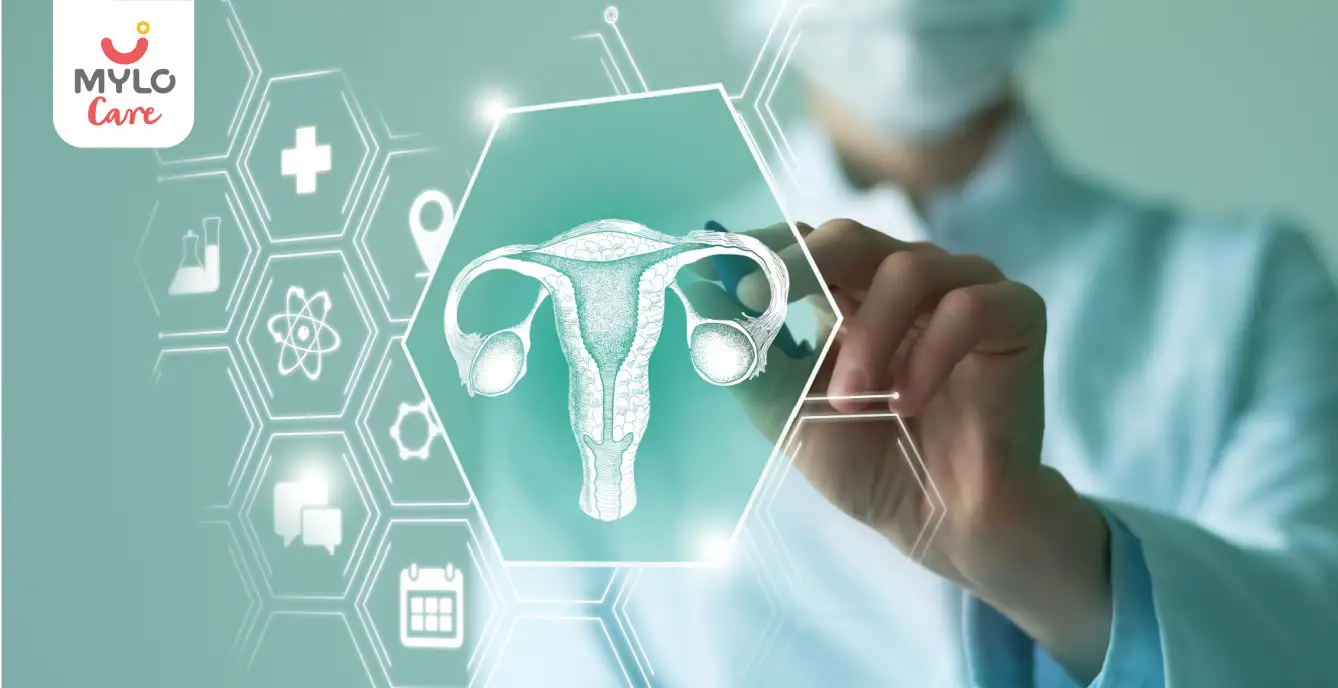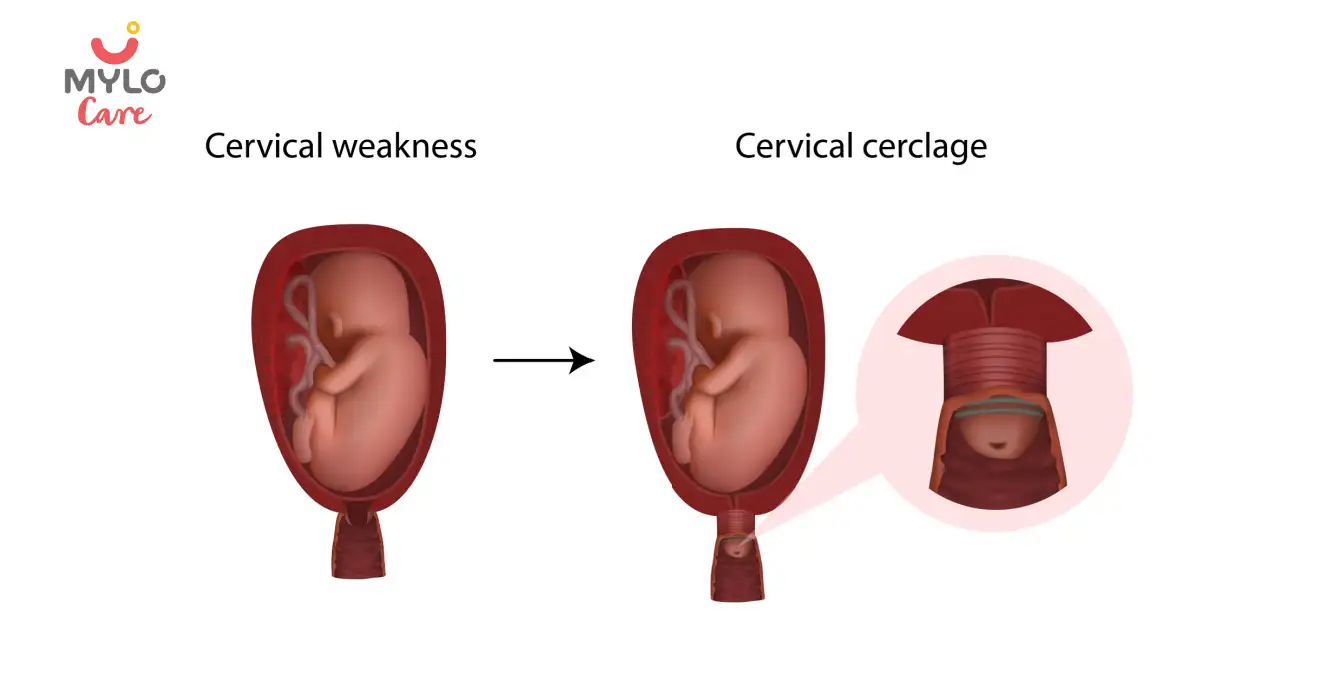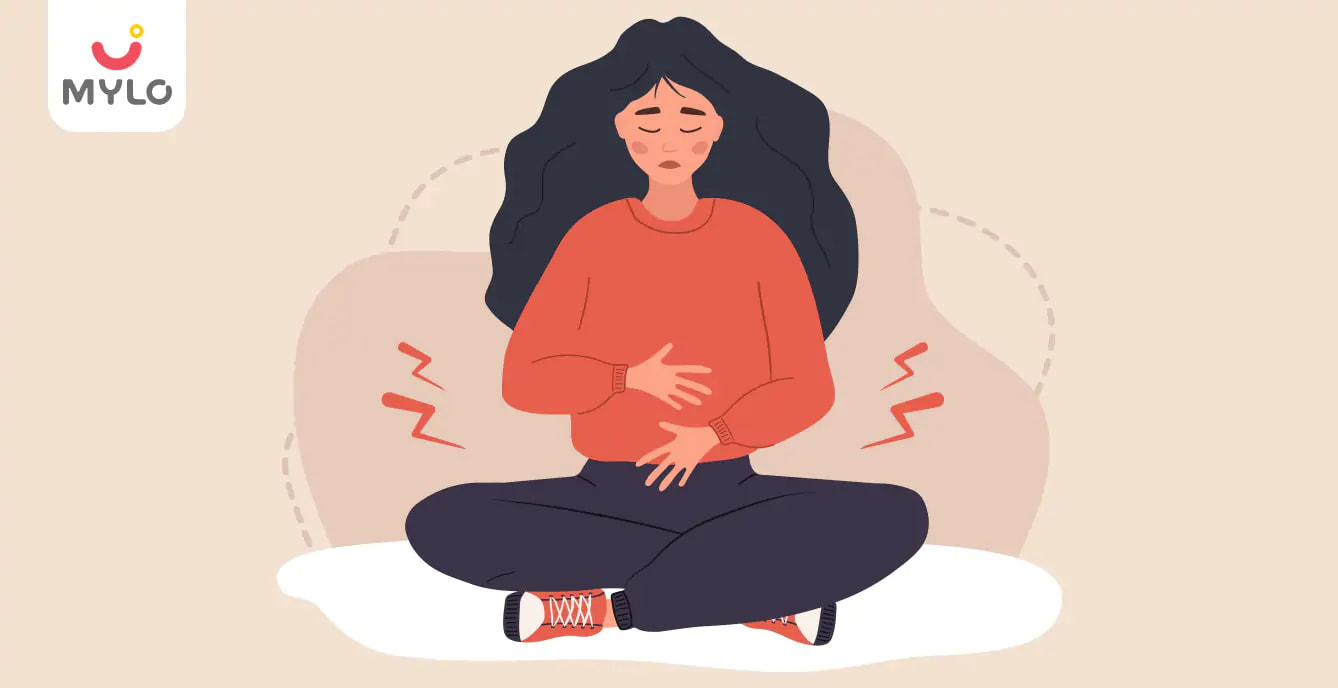Get MYLO APP
Install Mylo app Now and unlock new features
💰 Extra 20% OFF on 1st purchase
🥗 Get Diet Chart for your little one
📈 Track your baby’s growth
👩⚕️ Get daily tips

OR


Article Continues below advertisement
- Home

- PCOS & PCOD

- PCOD Problem After Marriage: Debunking Common Misconceptions and Finding Solutions
In this Article
- How Common is PCOD Problem After Marriage?
- Is PCOD Problem for Pregnancy?
- What are the Symptoms of PCOD Problem in Females?
- 1. Irregular Menstrual Cycles
- 2. Excessive Hair Growth
- 3. Acne and Skin Problems
- 4. Weight Gain and Difficulty Losing Weight
- 5. Mood Swings and Depression
- What are Some Complications of PCOD?
- 1. Infertility
- 2. Gestational Diabetes
- 3. High Blood Pressure and Preeclampsia
- 4. Miscarriage
- 5. Long-term Health Risks
- How to Get Pregnant with PCOD?
- 1. Lifestyle Modifications
- 2. Medications
- 3. Assisted Reproductive Techniques
- Final Thoughts
PCOS & PCOD
PCOD Problem After Marriage: Debunking Common Misconceptions and Finding Solutions
Updated on 6 December 2023



Medically Reviewed by
Dr. Shruti Tanwar
C-section & gynae problems - MBBS| MS (OBS & Gynae)
View Profile

Embarking on the journey of marriage and parenthood is an exhilarating experience for many women. However, for many women, this path may be fraught with unique challenges of Polycystic Ovary Disease (PCOD). From irregular menstrual cycles to fertility issues, PCOD problem after marriage can bring along a host of health concerns.
In this article, we will unravel the complications of PCOD, debunk common misconceptions, and discover effective solutions to empower women to embrace the joy of motherhood.
How Common is PCOD Problem After Marriage?
PCOD is a common hormonal disorder that affects women of reproductive age. It is estimated that around 5-10% of women worldwide suffer from it. While it can occur at any stage of a woman's life, it is often seen that the symptoms tend to worsen after marriage.
Article continues below advertisment
This can be attributed to various factors such as changes in lifestyle, stress, and hormonal imbalances caused by the stress of married life. However, it is important to note that not all women experience PCOD after marriage, and the condition can also manifest before or even after childbirth.
You may like : Reason for Irregular Periods After Marriage: A Comprehensive Guide
Is PCOD Problem for Pregnancy?
One of the major concerns for women with PCOD is its impact on fertility and pregnancy. It is a common misconception that PCOD automatically leads to infertility. While it is true that PCOD can make it more challenging to conceive, it does not mean that it is impossible.
With proper diagnosis and treatment, many women with PCOD have successfully conceived and had healthy pregnancies. The key lies in early detection, lifestyle modifications, and medical interventions, if required.
You may like : Yoga Poses for PCOD: 10 Asanas to Help You Balance Your Hormones
Article continues below advertisment
What are the Symptoms of PCOD Problem in Females?
Let us understand some tell-tale signs of PCOD in women:
1. Irregular Menstrual Cycles
Women with PCOS often experience irregular menstrual cycles, which can be characterized by longer or shorter cycles, missed periods, or heavy bleeding.
2. Excessive Hair Growth
PCOS can cause hirsutism, which is the excessive growth of hair on the face, chest, back, or other areas of the body. This is due to increased levels of androgens, the male hormones, in the body.
3. Acne and Skin Problems
Hormonal imbalances in PCOS can lead to the development of acne, oily skin, and other skin-related issues. These symptoms can be distressing for many women and impact their self-esteem.
4. Weight Gain and Difficulty Losing Weight
PCOS is often associated with weight gain or difficulty in losing weight. This is because hormonal imbalances can affect the body's metabolism and lead to insulin resistance.
Article continues below advertisment
5. Mood Swings and Depression
PCOS can also have an impact on mental health. Many women with PCOS experience mood swings, anxiety, and even depression. These symptoms can be challenging to manage and require proper medical attention.
You may alike : PCOD Diet: How the Right Diet Can Transform Your Life
What are Some Complications of PCOD?
PCOD can bring along certain challenges in a woman’s life, including:
1. Infertility
PCOD and PCOS are one of the leading causes of female infertility. The hormonal imbalances and irregular menstrual cycles can make it difficult for women with PCOD to conceive naturally.
2. Gestational Diabetes
Women with PCOD have a higher risk of developing gestational diabetes during pregnancy. This condition can have adverse effects on both the mother and the baby if not managed properly.
Article continues below advertisment
3. High Blood Pressure and Preeclampsia
PCOD increases the risk of developing high blood pressure and preeclampsia during pregnancy. These conditions can be dangerous if left untreated and require close monitoring by healthcare professionals.
4. Miscarriage
Women with PCOD have a slightly higher risk of experiencing miscarriages compared to women without the condition. This emphasizes the importance of proper management and medical care during pregnancy.
5. Long-term Health Risks
PCOD is associated with an increased risk of developing long-term health problems such as type 2 diabetes, heart disease, and certain types of cancer. Regular check-ups and a healthy lifestyle are crucial for managing these risks.
You may like : PCOD Cure: The Ultimate Guide to Managing PCOD at Home
How to Get Pregnant with PCOD?
While getting pregnant with PCOD may require some extra effort, it is not impossible. Here are some PCOD problem treatments that can increase the chances of conceiving:
Article continues below advertisment
1. Lifestyle Modifications
Maintaining a healthy weight, eating a balanced diet, regular exercise, and managing stress can all have a positive impact on fertility.
2. Medications
Depending on the individual's specific needs, doctors may prescribe medications to regulate the menstrual cycle, induce ovulation, or improve insulin sensitivity.
3. Assisted Reproductive Techniques
In some cases, fertility treatments such as in vitro fertilization (IVF) or intrauterine insemination (IUI) may be recommended to increase the chances of pregnancy.
Final Thoughts
PCOD problem after marriage can be managed with proper diagnosis, lifestyle modifications, and medical interventions. It is crucial to seek medical advice and support to manage PCOS effectively, ensuring the best possible outcomes for both physical and mental well-being.
Article continues below advertisment
References
1. Rajkumar E, Ardra A, Prabhu G, Pandey V, Sundaramoorthy J, Manzoor R, Sooraj KV.(2022). Polycystic ovary syndrome: An exploration of unmarried women's knowledge and attitudes. Heliyon.
2. Bharali MD, Rajendran R, Goswami J, Singal K, Rajendran V. (2022).Prevalence of Polycystic Ovarian Syndrome in India: A Systematic Review and Meta-Analysis. Cureus.





Medically Reviewed by
Dr. Shruti Tanwar
C-section & gynae problems - MBBS| MS (OBS & Gynae)
View Profile


Written by
Anandita Sharma
Drawing on more than a decade of expertise in administration, Anandita Sharma currently serves as a content operations e
Read MoreGet baby's diet chart, and growth tips

Related Articles
RECENTLY PUBLISHED ARTICLES
our most recent articles

Ovulation
White Discharge After Ovulation: A Normal Occurrence or Cause for Concern?

Ovaries
Normal Ovary Size: How It Varies and What It Means for You

Festivals & Celebrations
2024 Calendar with Holidays and Festivals of India

Abortion
After-Abortion Sex: A Guide to Physical and Emotional Wellness

Premature Delivery
Cervical Cerclage: A Closer Look at the Procedure and Its Benefits

Stories
The Ultimate Guide to Panchatantra Stories for Kids
- Which Is Better Normal Or Cesarean Delivery
- How to Get Baby in Right Position for Birth?
- Paheliyan 101: Riddles for Kids That Educate and Entertain
- The ABCs of Cephalic Presentation: A Comprehensive Guide for Moms-to-Be
- The Ultimate Guide to Consuming Chia Seeds in Pregnancy
- Essential Tips for Normal Delivery After Cesarean
- Crab During Pregnancy: Benefits, Risks and Smart Choices
- Normal Delivery Tips: An Expecting Mother's Guide to a Smooth Childbirth Experience
- Top 10 Panchatantra Stories in English You Must Read to Your Children
- What Helps in Improving Mental Health of Women
- Childhood Disorders: Meaning, Symptoms & Treatment
- Bleeding During Pregnancy 8 Weeks: Should You See a Doctor?
- The Ultimate Guide to Having Sex After C Section
- The Ultimate Guide to Baby Brain Development Food During Pregnancy


AWARDS AND RECOGNITION
Mylo wins Forbes D2C Disruptor award
Mylo wins The Economic Times Promising Brands 2022
AS SEEN IN
















At Mylo, we help young parents raise happy and healthy families with our innovative new-age solutions:
- Mylo Care: Effective and science-backed personal care and wellness solutions for a joyful you.
- Mylo Baby: Science-backed, gentle and effective personal care & hygiene range for your little one.
- Mylo Community: Trusted and empathetic community of 10mn+ parents and experts.
Product Categories
baby carrier | baby soap | baby wipes | stretch marks cream | baby cream | baby shampoo | baby massage oil | baby hair oil | stretch marks oil | baby body wash | baby powder | baby lotion | diaper rash cream | newborn diapers | teether | baby kajal | baby diapers | cloth diapers |







